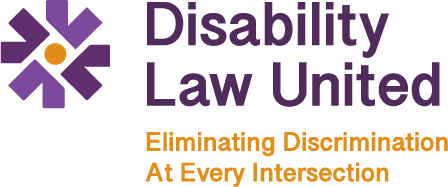Connecting with family and friends outside prison can be difficult and expensive for all inmates. However, once they’ve navigated the prison’s red tape and are able to make a call, hearing inmates can directly communicate with their contacts outside the prison. That is not the case for deaf inmates. Many jails and prisons across the country offer only outdated and ineffective technology to people who are deaf. Along with partners including the National Association of the Deaf (NAD), Disability Law United is working to make sure deaf inmates have effective communication in prisons across the country. This includes access to effective phone calls, including videophones and CapTel (captioned phones).
For deaf people whose primary language is American Sign Language (ASL) or another sign language, videophones are necessary for effective phone communication. Videophones (VPs) allow deaf inmates to communicate in sign language with those outside prison, including friends, family, and attorneys. When a deaf inmate uses VP to call a deaf person outside prison, there is direct communication in sign language. When a deaf inmate uses VP to call a hearing person outside prison, the deaf inmate can communicate in sign language through a relay operator who is a sign language interpreter.
Although deaf inmates need VP for effective communication, most prisons only provide teletypewriters (TTY), an outdated technology that requires the parties to type back and forth in English (generally the second language for most deaf people). As one expert explained, “consider the prisoner outrage that would result from a . . . policy . . . require[ing] all prisoners to communicate. . . only by using fax machines. Communication via fax machines is quite parallel to TTY communication – the communication is asynchronous, you send your communication, wait for a response, hope it is not garbled and hope you have not been misunderstood.”
In addition, because most people outside prison do not have TTYs, two relay operators are usually needed to facilitate the TTY communication. Typing in written English and utilizing multiple relay interpreters often results in confusion and miscommunication. Transcripts of TTY calls frequently contain portions which are unreadable.
Disability Law United currently represents several inmates in a lawsuit against the Colorado Department of Corrections (CDOC) on this issue. The Americans with Disabilities Act (ADA) and related laws require CDOC to provide effective communication to deaf inmates. Each plaintiff asked CDOC for access to a VP but CDOC refused. CDOC claims TTY is as effective as VP. These plaintiffs and their expert witnesses have provided evidence that VP is needed by each plaintiff for effective communication. Both CDOC and our clients recently filed motions. Each side asked the court to decide without holding a trial whether CDOC must provide access to VPs. Martie Lafferty, Disability Law United’s Director of Accessibility Projects comments, “Our clients deserve equal access to phone calls. We hope this court ruling will help make that happen.”
Please contact Disability Law United if you or someone you know needs help getting a prison to provide access to a VP. You can also contact us about other communication problems in jail or prison. We will review the information to see if we can help. We cannot help with every issue. Here is our contact information: 303-797-7901 or intakes@creeclaw.org.
RESOURCES
https://www.fcc.gov/consumers/guides/telecommunications-relay-service-trs
https://www.fcc.gov/consumers/guides/video-relay-services
https://www.captel.com/captel/
https://www.wired.com/story/why-many-deaf-prisoners-cant-phone-home/
SIMPLIFIED SUMMARY
Prisons should have videophones (VPs) for deaf inmates. Contact Disability Law United if you are in prison and need a VP. Contact Disability Law United if you know a deaf inmate who needs a VP. We cannot help everyone who contacts us. We will review your issue to see if we can help. Here is our contact information: 303-797-7901 or intakes@creeclaw.org.

1 thought on “Deaf Inmate Access to Phone Calls”